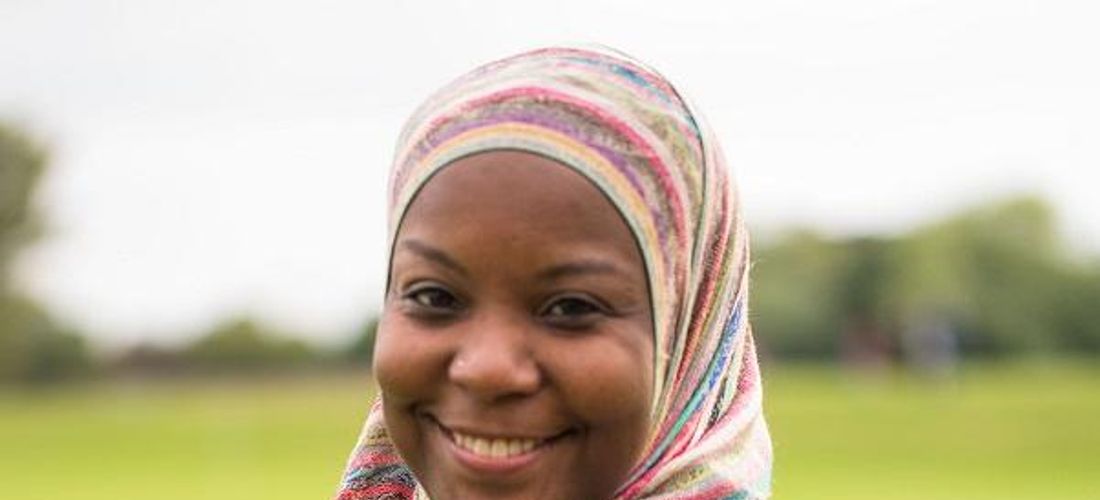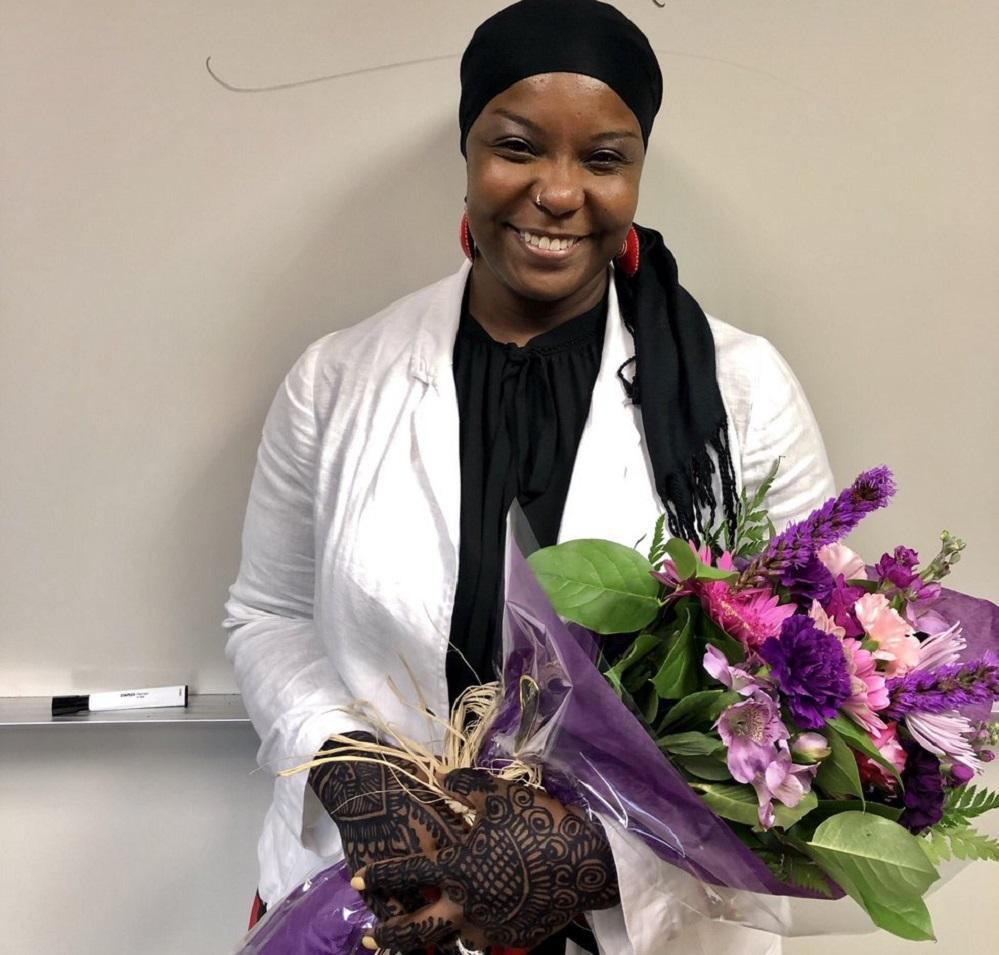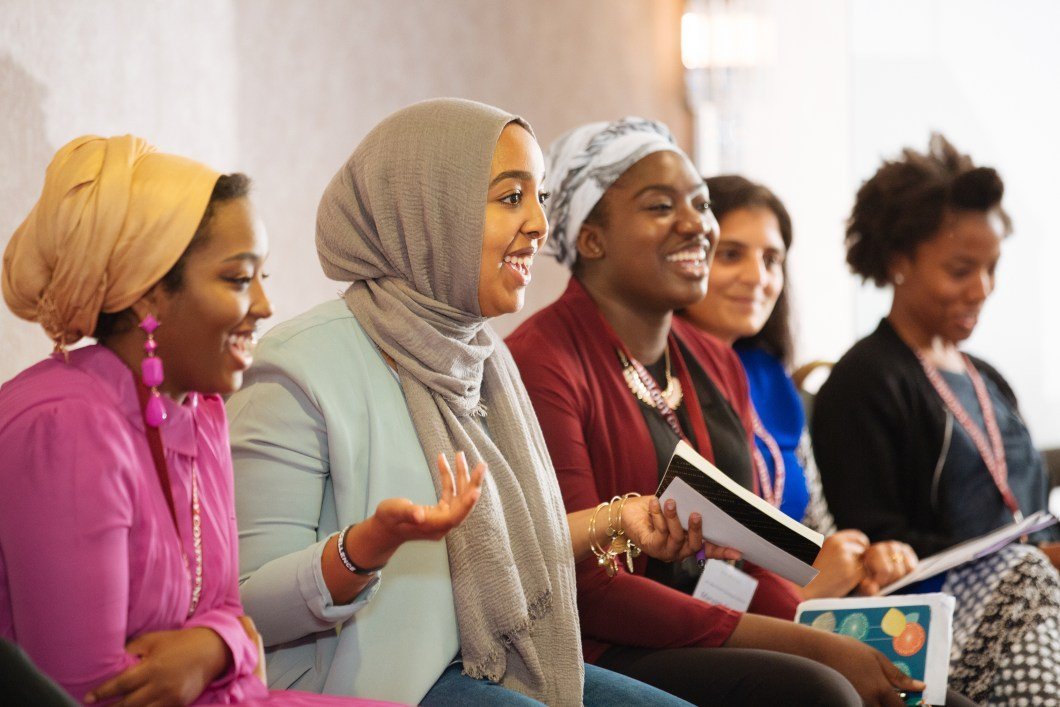Dr. Kameelah Rashad Champions Mental Health and Shares Radical Love Along the Way
Lifestyle
|
Jul 9, 2020
|
6 MIN READ

Dr. Kameelah Rashad
Editor's Note: We've been featuring dynamic Muslim women on the blog for awhile, and we are stepping it up with our summer series dedicated to ChangeMakers, women who are living boldly and working to affect change in a myriad of ways – big and small – through their work as community organizers, artists, scientists, activists, educators, health professionals, care givers and more. We hope you are inspired by them to be the change you are searching for in your community!
By Layla Abdullah-Poulos
I first met Dr. Kameelah Rashad at the Black Muslim Psychology Conference, a convening created by her that centers on the mental and emotional well being of Black Muslims and addresses the social issues impacting them. The annual conference is one of the many ways that she uses her sage voice and expertise to amplify personal, community and national issues impacting Black Muslims, non-Muslims and women.
Listening to Dr. Rashad at the conference, her supportive confidence and wisdom shone through. She riveted listeners and encouraged an atmosphere of respect, fellowship and mutual emotional and spiritual edification among attendees. As long as I’ve known her, she has a special way of making everyone feel validated.
Dr. Rashad holds a Psy.D. in Clinical Psychology and multiple master’s degrees and clinical certifications. In 2013, she founded the Muslim Wellness Foundation (MWF), a mental health organization with the primary objective to reduce stigmas about mental illness, addiction and trauma and raise awareness in American Muslim communities through education. In addition to the Black Muslim Psychology Conference, Dr. Rashad organizes multiple collaborations and projects through the Muslim Wellness Foundation, including the Black Muslim COVID Coalition (BMCC) and the Wisdom of the Elders project, two initiatives that center Black Muslims and the unique social issues affecting them.

Dr. Kameelah Rashad upon completing her PhD.
“We have a unique experience of being both a racial and religious minority in a country that prioritizes white, Christian lives,” explains Dr. Rashad. “It’s not just enough to be white, you have to be Christian too. There are so many ways that we [Black Muslims] can be invisible.
“[With African Americans], we have a racial affinity and shared history, but when it comes to religion, their privilege, or the fact that they are part of a majority faith community does afford Christians some capital and perceived respectability they may try to hold onto. When we think about what many Black Christians have internalized about Muslims, it’s very negative,” says Dr. Rashad. “They may know about the Nation [of Islam] but not the range and diversity of Black Muslims in the United States. They don’t know about The Walking Quran or the rebellions in Brazil. So it’s completely another culture’s religion.”
The problem in American Muslim communities, continues Dr. Rashad, is that “... we replicate some of the broader structures that serve to exclude Black people in general. The systems we live in predicate white superiority and black inferiority, with structures in place that reinforce that idea. In American Muslim communities, there is always this distancing from Blackness.
“The complicity in non-Black Muslim communities post-9/11 was to cling to this idea that we are different. We are not like those Black people who have been historically subjugated. So, let me show you how I am different and should not be treated [like them].” In focusing on how they are exceptional or different than what non-Muslims believe about Muslims, non-Black Muslims ended up making things harder for themselves and their Black Muslim sister and brothers: Dr. Rashad explains, “There is a narrative of exceptionality spun. Let’s try to curate the extraordinary Muslim stories. When someone uses exceptionality to prove their humanity, they’re playing into that trope. No, your life has inherent worth, you don’t have to tell an extravagant story.
“These are some of the things that we have to accept as our reality because if we don’t accept it, we can’t effectively challenge it.”
Black Muslim Psychology Conference
The BMPC, one of Dr. Rashad’s initiatives, demonstrates a growing appreciation for the need for Black Muslims to have spaces to address their mental and emotional well being and the issues negatively impacting both. According to the initiative’s website, “The Black Muslim Psychology Conference intentionally and unapologetically centers the narratives, voices and strengths of Black Muslims with a special emphasis on healing and collective well-being. This unique gathering is dedicated to expanding the conversation on self-love, self-acceptance and self-determination.” The MWF holds the annual conference in Philadelphia, where people gather to listen to panels and engage in spirit-fortifying communal fellowship.
Every year, the BMPC affords presenters and panelists from across the country and throughout the globe opportunities to highlight topics centered on a common theme. Last year, the conference’s theme– The Mis-Education of the Black Muslim – included keynote speaker Yusef Salam, workshops on marriage, family, community development and educational topics like home school cooperatives, spiritual miseducation of the American Muslim negro and a generating deeper appreciation for oral history, storytelling and creativity in Black Muslim communities.

Black Muslim Psychology Conference; image source: BMPC
Past conferences have included notable American Muslim scholars, leaders, educators and activists like Rep. Ilhan Omar, Ustadha Ieasha Prime, Jamillah Karim, Margari Aziza, Donna Auston, Habeeb Akande and Prof. Khaled Beydoun. Convenings also provided space to center Black Muslim creativity, hosting artists like Tariq Toure, Sadiyah Bashir and Youseff Kromah.
Organizers canceled the conference this year due to state COVID shutdowns. In an About Islam article, Dr. Rashad describes the gratification she finds in facilitating an event that brings her fellow Muslims joy.
“If this is what Allah intended that I do, I am so grateful that He gave me this mission because there is nothing like seeing your people happy. It is not the kind of happiness that is so optimistic that you are oblivious to challenges. It’s a happiness of gratitude, fulfillment and peace.
“If I can provide a space and mechanism for people to find peace, even for two days, it is just tremendous.”
The BMPC is unique in the way it wraps attendees with a sense of tangible fellowship. In the year that I attended, people constantly expressed a sense of belonging and community that extends beyond the two-day conferences. I have built professional and personal relationships at the conference that continue to enhance my work and feed my spirit.
Black Muslim COVID Coalition
At the onset of the COVID pandemic in the United States, Dr. Rashad anticipated the distinct ways the virus would impact Black Muslim communities and the existence of blindspots in Black and Muslim organizations addressing them. She and her team at MWF, in cooperation with the Muslim Anti-Racism Collaborative (MuslimARC), developed and launched the BMCC, creating a consortium of Black Muslim organizations, experts, advocates and activists examining and addressing layers of ways the virus impacts Black Muslims. Through webinars, the BMCC offers education, planning and preparedness advice to populations of people who often fall through the cracks of media and community attention.
“We hope that people take away a message from our programming that we are caring for ourselves,” says Dr. Rashad. “We care about the folks who are incarcerated, the women who are incarcerated and those who want to fashion the rights of Ramadan but have their rights infringed upon. We care about our elders. We care about people who are weary and recall the history of scientific racism and medical apartheid.
“These are the hard conversations we want to think about and center. We are marginalized people who understand that there are layers of vulnerability.”
Dr. Rashad remains a voice of influence on social media, in interfaith spheres and through her show on Islam Today Radio. She lives in Philadelphia with her husband and children and remains a major influence in American Muslim culture. Her work fortifies the Ummah, and her caring personality fortifies the emotional well being of so many honored to know her.
Subscribe to be the first to know about new product releases, styling ideas and more.
What products are you interested in?

